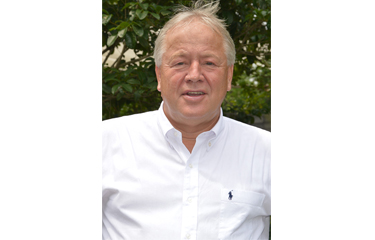Nordic Aqua Partners, which is pioneering the use of advanced recirculating aquaculture system (RAS) technology to produce Atlantic salmon in China, is about to break ground at its site in Ningbo, about two hours from Shanghai.
Head of Nordic Aqua (Ningbo) Co. Ltd. Ove Nodland said China is the world's largest producer and consumer of seafood, and is expected to account for around half of the anticipated global consumption of 178 million MT tons per year by 2030. Current consumption of salmon in China is around 100,000 MT and estimated to at least double to 200,000 MT by 2025.
“We will be the first to deliver fresh, locally produced farmed salmon directly to the Chinese consumer,” Nodland told SeafoodSource. “This will save on air freight costs and import duties, significantly reduces the carbon footprint of the fish, and improve its shelf-life by up to four days.”
The first intake of eggs into the hatchery facility is scheduled for late 2021 and the first harvest of around 4,000 metric tons is anticipated in Q3 2023, according to Nodland. Nordic Aqua Partners recently raised EUR 55.1 million (USD 66.7 million) for the development, in a private placement that was substantially oversubscribed, and attracted strong interest from Norwegian and international investors.
With funding in place, aquaculture systems manufacturer AKVA Group confirmed a EUR 50 million (USD 60.4 million) turnkey contract to construct the first-phase RAS facility and provide training, supervision and ongoing support. Nordic Aqua Partners also confirmed partnerships with investor Nutreco, which will supply specialized RAS feed and expertise through its aquaculture division Skretting, and with Benchmark Genetics to supply top-quality ova from Iceland.
Nodland, who has worked in China for more than two decades, said he came up with the idea of farming salmon in Ningbo around seven years ago, after he finished setting up the Nordic Industrial Park in the city and was looking for new adventures and opportunities.
“I knew nothing about salmon farming, but I knew people who did. The more I looked into it, the more I thought it would be a good idea, so I spent several years researching in my spare time, reaching out to companies who could help make the concept a reality, and ensuring that we could meet strict social and environmental requirements,” he said.
China’s authorities also liked the idea, which fit in with their strategy of encouraging self-sufficiency in the production of high-quality, nutritious, and safe food to meet future consumer demands, Nodland said. As a result, Nodland set up Nordic Aqua Partners in 2016, signed a cooperation agreement with the Chinese government, and set about raising initial capital and recruiting key personnel, including the current company’s current chairman and managing director Ragnar Joensen, the former group manager of technology at Mowi.
“There were a lot of hoops to jump through and a lot of bureaucracy to deal with, but that is the same with any successful venture,” Nodland said.
The project will draw heavily on international expertise in the short term, but Nodland said he envisages the ranks of the firm’s middle and junior management will be primarily composed of Chinese nationals.
Nodland said he is looking forward to seeing site preparation and construction work start on the project this month. Nordland is also pragmatic about the challenges inherent in the construction and operation of any aquaculture project, but is confident in the abilities of AKVA to deliver a premier facility. He said one major benefit of AKVA’s state-of-the-art design is that it allows for use of renewable energy in the form of solar panels and a biogas power plant, and requires no freshwater intake. Instead, filtered and cleaned seawater will supply the production tanks, while freshwater requirements will be supplied using a reverse osmosis process. Wastewater returning to the ocean will be thoroughly treated, and waste and feed residues will be processed for use in biogas production, cultivating seaweed or as fertilizer, according to Nodland.
The funding the project has already secured is earmarked for the first two phases of development; the first will prove the concept of the 4,000 MT unit, and the second will double production capacity to 8,000 MT. Nodland said he is pragmatic in his expectations for the project and said he’s confident other RAS projects will begin to pop up across China. But at present, he said he’s happy that Nordic Aqua Partners is one step ahead and is excited to see the project move forward.
“We have also secured land to enable us to take production up to 16,000 MT, and have plans for future growth, but we are taking it one step at a time,” Nordland said.
Photo courtesy of Nordic Aqua Partners







